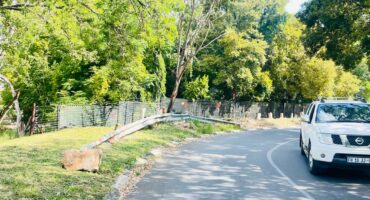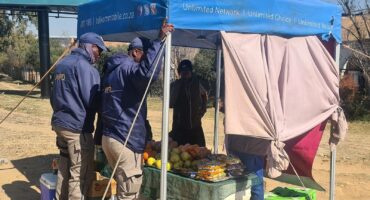SANBS assures of blood safety against Zika virus
JOBURG - The South African National Blood Service (SANBS) assured the public of the safety of its blood collection amid the recent worldwide zika virus scare.

While conducting a blood drive at the Pan Africa Mall in Alex, Vanessa Raju of the service, said they adjusted the donor criteria to ensure blood recipients were not exposed to the virus. This coincided with the Minister of Health Aaron Motsoaledi’s recent pronouncement that a Columbian businessman was treated for the virus in South Africa and was later released.
Motsoaledi allayed fears about the virus, saying it was only spread by a specific kind of mosquito which is not endemic to this country. He added that aircraft and other transport modes travelling from affected countries were sprayed for the virus before entering South Africa.
The Centre for Disease Control said only one in five infected people became ill, and according to Raju the infection is said to be mild in most cases. “Although not life-threatening, there is a concern that zika causes serious brain injury to babies whose mothers have been infected during pregnancy and, also, there is a concern about the increase in cases of Guillain-Barre syndrome, a temporary but serious disorder which causes paralysis. Up to 80 percent of people infected with the zika virus may have no symptoms at all,” said Raju.
She asked potential donors who have travelled to affected countries not to donate blood within 28 days of their return. “The safety of our blood donors and recipients are of utmost importance and the deferral has been put in place for that exact reason.”
The countries affected by the zika virus are in Africa – Cape Verde; in the Americas – Barbados, Bolivia, Brazil, Colombia, Costa Rica, Guyana, Curacao, Dominican Republic, Honduras, Ecuador, El Salvador, Martinique, French Guiana, Mexico, Venezuela, Jamaica, Suriname, US Virgin Islands, Guadeloupe, Guatemala, Paraguay,
Panama, Haiti, Puerto Rico, Saint Martin and Nicaragua; and in Oceania/Pacific – American Samoa, Samoa and Tonga.
Raju encouraged those who are healthy to donate generously. Donors should be 16 years and above, weigh more than 50kg, be in good general health and live a sexually safe lifestyle. They should have a substantial meal three to four hours before donating and increase fluid intake on the day of donation.
Details: 0800 11 9031.



